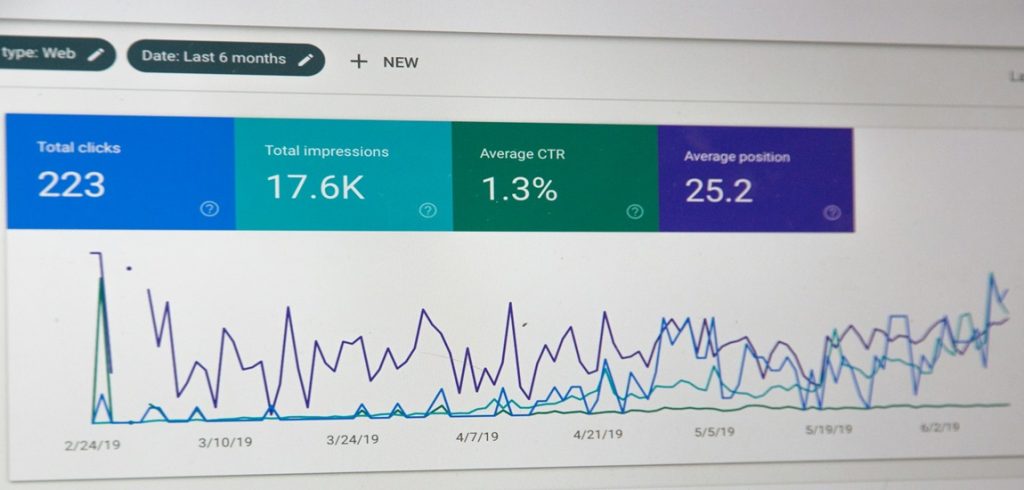
Pic Courtesy - UnSplash
In today’s data-driven world, organizations are increasingly relying on artificial intelligence (AI) to gain actionable insights and remain competitive in dynamic marketplaces. AI-powered business and market research has become critical in harnessing enormous amounts of data, extracting market insights, finding trends, understanding customer preferences, analyzing behaviors, and tracking rival activity.
Artificial intelligence (AI) has profoundly changed the face of business and market research, ushering in a new era of data-driven decision-making. By leveraging the potential of AI, organizations can obtain invaluable insights across numerous dimensions critical to their success.
Let’s delve into some compelling case studies showcasing how AI has revolutionized these aspects of research.
1. Processes Large Scale Data: AI technologies are excellent at processing large volumes of data quickly and accurately. This capacity enables businesses to efficiently handle and analyze large datasets, allowing them to uncover valuable patterns and insights that would otherwise go unnoticed.
Case Study – Amazon: Amazon, the e-commerce behemoth, uses AI algorithms to process vast amounts of data from customer purchases, browsing habits, and interactions. Amazon uses AI-driven algorithms to optimize inventory management, estimate consumer demand, and personalize suggestions, allowing for efficient handling of massive amounts of data to improve the entire customer experience.
2. Facilitates Market Insights: AI-powered tools have transformed market research by combining data from multiple sources. This integration provides firms with extensive market insights, including consumer habits, preferences, demographics, and purchasing patterns, allowing them to make more educated strategic decisions.
Case Study – Nielsen: Nielsen, a multinational measurement and data analytics company, uses AI techniques to obtain consumer insights. Its AI algorithms process information from a variety of sources, including social media, sales data, and demographics. This detailed study assists Nielsen’s clients in understanding market trends, consumer opinions, and preferences, allowing them to make educated business decisions.
3. Notifies Trends: AI algorithms can identify new trends by examining patterns in datasets. This proactive approach enables organizations to anticipate changes in market preferences or demands, allowing them to adjust their plans quickly.
Case Study – Spotify: Spotify uses AI to track user activity, such as listening habits and preferences. Spotify analyzes this data to identify upcoming music trends, create tailored playlists, and propose new artists to users. This AI-driven strategy not only improves the user experience but also helps to stay ahead of shifting music preferences.
4. Notes Customer Preferences: Businesses may gather and evaluate granular client preferences with AI-powered analytics. Understanding individual preferences aids in tailoring products, services, and marketing techniques, increasing consumer satisfaction and loyalty.
Case Study – Netflix: Netflix uses AI extensively to understand audience preferences. Netflix recommends tailored material to customers based on their watching history, time spent on content, and user ratings. This personalized strategy increases consumer satisfaction and retention, demonstrating AI’s ability to detect and adapt to individual preferences.
5. Analyzes Customer Behavior: AI offers in-depth analysis of client behavior, providing insights into purchasing habits, browsing trends, and interactions. This understanding helps to create targeted marketing strategies and improve overall consumer experiences.
Case Study – Starbucks: Starbucks uses artificial intelligence (AI) in its mobile app to evaluate customer behavior and preferences. Starbucks customizes offers and promotions for individual consumers based on their purchase history, location, and order preferences. This individualized marketing strategy increases client engagement and loyalty.
6. Notes Competitor Activity: AI-powered technologies enable the tracking of competitor actions like as price strategies, product launches, and consumer involvement. This information enables organizations to fine-tune their own strategy for market competitiveness.
Case Study – Walmart: Walmart uses AI-powered analytics to track competition prices, inventory levels, and customer ratings. Walmart maintains market competitiveness by regularly studying this data and adapting its price tactics and product selections.
A pivotal role in business :
In each of these case studies, AI plays an important role in reshaping the landscape of business and market research :
1. Efficiency: AI automates the processing of massive volumes of data, allowing businesses to extract valuable insights quickly and efficiently.
2. Personalization: Understanding consumer preferences and habits allows firms to adjust their services and marketing methods, resulting in increased customer satisfaction and loyalty.
3. Competitive Advantage: AI-driven market research helps firms remain ahead by recognizing trends, forecasting market developments, and tracking rival activity.
AI-powered business and market research is a game changer, allowing companies to make data-driven decisions that promote growth, innovation, and competitive advantage. Embracing AI technologies in research processes allows organizations to traverse the market’s intricacies with agility and precision.
AI-powered business and market research have become essential tools for firms looking to gain a competitive advantage. Leveraging AI not only speeds up data processing, but it also allows for actionable insights that are crucial for strategic decision-making, eventually supporting business growth and adaptation in today’s dynamic marketplaces.




More Blogs
Expanding Globally: Navigating Challenges and Leveraging Strategies
7 Ways of Making Progress: A Startup Expert’s Guide
AI in the Insurance Business: Revolutionizing the Industry